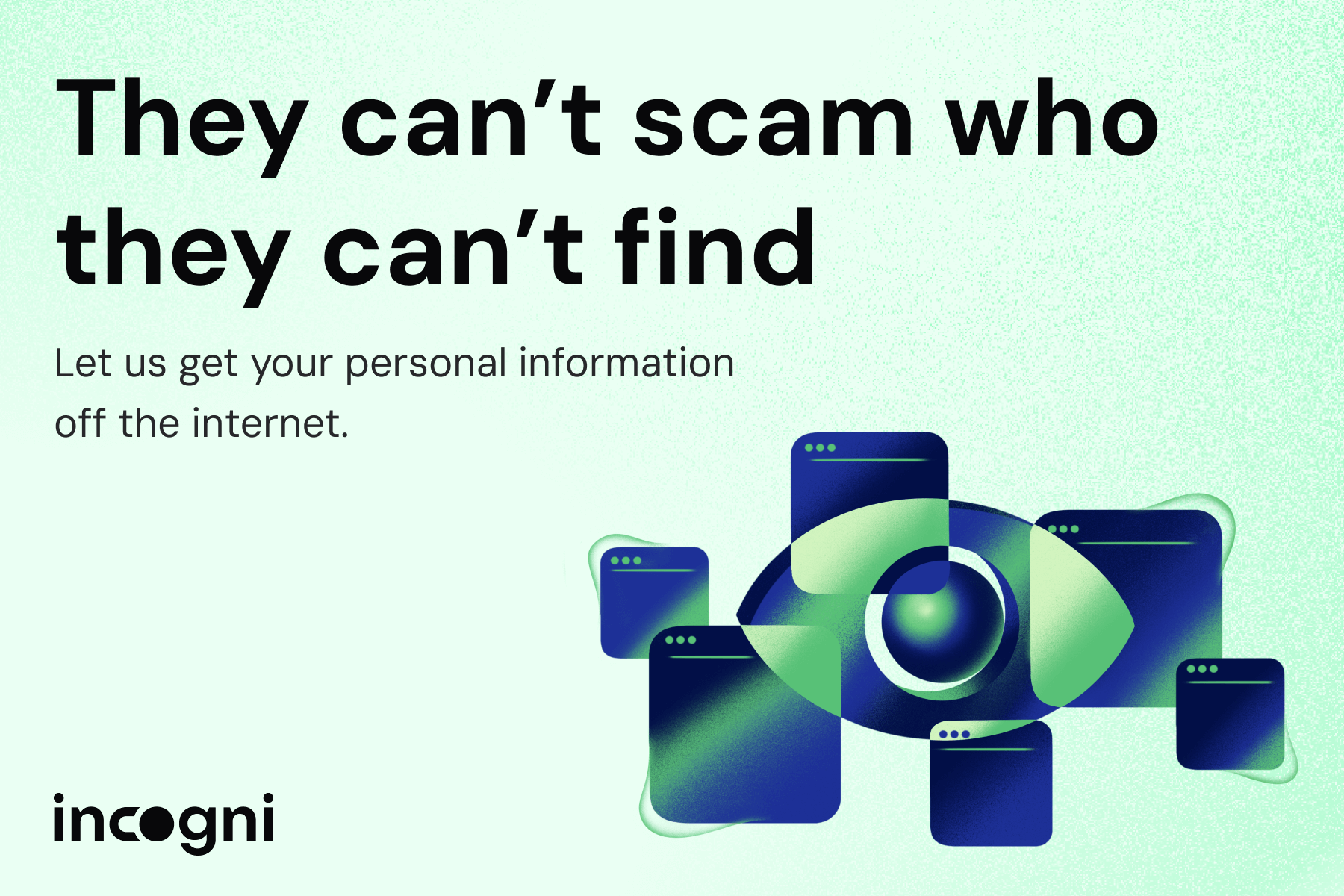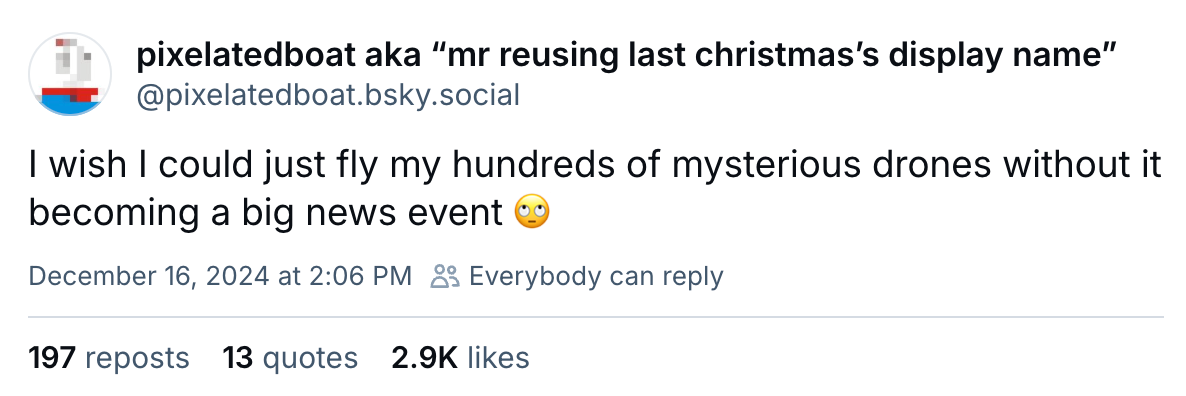As last year came to a close, I had my eye on two key stories that I expected to unfold in 2024. The first was a once-in-a-generation realignment in social networks that I expected to emerge from the ashes of Twitter; the second was the proliferation of generative artificial intelligence across more and more digital surfaces.
Over 139 columns this year, I tracked both closely. As X.com became a purely political project, Meta’s Threads grew rapidly — and Threads chief Adam Mosseri sat down with me on its anniversary to discuss its future. I also spoke with Bluesky CEO Jay Graber as that app opened to the public — and later watched in amazement as the app added millions of active users a day. The re-alignment I predicted last year accelerated after Donald Trump won the 2024 US presidential election, spurring millions of Twitter dead-enders to abandon the app in search of greener pastures.
Meanwhile, generative AI indeed spread like kudzu across the digital landscape. Google’s embrace of the technology led me to fear that it would push the web into permanent decline. And many of the implementations we saw this year left a lot to be desired, from Google’s now-notorious AI Overviews suggesting that people eat rocks to the useless text-message summaries authored by “Apple Intelligence.”
At the same time, a handful of generative AI tools reached mainstream popularity — led by OpenAI, whose ChatGPT topped 300 million weekly users on its way to becoming a household name. Google’s NotebookLM startled people with the high quality of the synthetic podcasts it can create out of PDFs, and Meta scored a surprise hit with its AI enhanced sunglasses. (And its experimental Orion prototype made me want to throw away VR headsets forever.)
Some skeptics continued to insist that Silicon Valley had fallen for another crypto-style hype cycle, creating a massive bubble that would never solve important problems or return consistent profits. But while they fulminated, Google DeepMind won the Nobel Prize for Chemistry for the contributions to understanding protein folding made by its AI model AlphaFold 2. And the Bay Area AI hipsters gravitated toward Anthropic’s Claude, struck by its humane tone and the genuine utility of a synthetic companion that can serve as a nearly free therapist, coach, and tutor.
Next year will bring additional and possibly monumental changes to the landscape. The return of Trump to the presidency will resurface old debates about bias in social networks, and what responsibilities platforms have to fight democratic erosion. Big tech CEOs are already showing fealty to Trump with million-dollar contributions to his inauguration, which may buy them peace but seems just as likely to alienate their employees and their customers. On the flip side, CEOs that openly oppose Trump and his cronies now risk incurring the wrath of the entire federal government.
Whatever happens, Platformer will be here to break news, capture the daily conversation, and attempt to work out where the tech world is going in real time. In the meantime, I’m grateful to everyone who read us in 2024. Our decision to move off Substack made this our most difficult year. But it also gave us a home on the open web, powered by open-source software created by a profitable nonprofit foundation, that should offer us stability for many years to come.
Before we head out for the holidays, here’s a quick scorecard to measure our predictions from last year — and 15 new ones to carry us into 2025. Thanks again for reading, and happy holidays to all of you. We’ll see you back in your inbox on January 6.
2024 predictions
Prediction: Threads overtakes X in daily users and becomes the leading text-based social network.
Right or wrong? Wrong, I think. Threads hit an impressive 100 million daily active users, but in March X said it still had 250 million daily active users. I apply a huge discount rate to anything X says about its own usage, but while Threads had a great year it doesn’t seem to have quite hit the mark I set.
Prediction: Google mostly catches up to OpenAI in LLM quality and begins to neutralize GPT’s lead.
Right or wrong? Both. I was right that Google would catch up to OpenAI in quality; today, its latest models dominate the leaderboards. At the same time, this doesn’t seem to have done much to erode OpenAI’s market share.
Prediction: GPT-5 begins training.
Right or wrong? Right.
Prediction: The quality of search results degrades as Google proves unable to reliably detect AI-generated content.
Right or wrong? Right! Search quality did in fact degrade, but it had more to do with Google’s own AI summaries than AI slop. But search slop was a problem, too.
Prediction: Scaled-up AI-generated sludge outcompetes many digital media companies for advertising and affiliate-link dollars, sparking further waves of job losses and consolidation.
Right or wrong? Mostly wrong. While at least 1,000 journalists lost their jobs this year, eight times that number were laid off the year prior.
Prediction: The US presidential election is full of synthetic media, and it mostly doesn’t matter.
Right or wrong? Right.
Prediction: Fragmentation in social media will make it more difficult to understand which narratives are resonating most with voters.
Right or wrong? Right.
Prediction: Apple’s Vision Pro is successful enough to revive interest in mixed reality and the metaverse.
Right or wrong? Wrong. I enjoyed the Vision Pro, and while it was on track to generate more than $1 billion, by Apple’s lofty standards it was mostly a flop. What actually drove attention toward mixed reality this year was the surprising success of the Meta Ray-Bans.
Prediction: The number of people who say they are in romantic relationships with AI companions will increase sharply.
Right or wrong? Right! If you haven’t already, read this incredible feature on the subject by Josh Dzieza at The Verge.
Prediction: Meta kills off its incomprehensible celebrity-based AI characters.
Right or wrong: Mercifully right.

15 predictions for 2025
The TikTok ban goes into effect. Now that the Supreme Court has agreed to hear the case, it’s tempting to think that the justices might prevent ByteDance from having to divest its crown jewel. But it seems just as likely that a majority of justices will want to underscore Congress’ national security and data privacy concerns, and undermine the First Amendment while they’re at it. Trump may yet find a way to save the app, but in the meantime I expect the justices to side with Congress and put pressure on the president to let this one go.
The AI culture war begins. The first Trump presidency was defined by near-daily tantrums from conservatives alleging bias in social networks, culminating in a series of profoundly stupid hearings and no new laws. Look for these tantrums (and hearings) to return next year, as Republicans in Congress begin to scrutinize the center-left values of the leading chatbots and demand “neutrality” in artificial intelligence.
The child safety fight comes to chatbots as well. State legislatures and attorneys general will continue to push for added restrictions on teenagers using social apps. But with more teens using chatbots — and some of them having tragic outcomes — look for there to be more pressure on AI labs to add restrictions, warning labels, and safety features for their under-18 users.
Google, Apple, or both will begin to offer age verification at the device level. Under increasing bipartisan pressure, one or both big app store owners will take the political win that device-level verification represents. Let parents set their children’s ages when they first set up their accounts, and pass that age through to app developers so they don’t all have to do verification individually. It can be done in a privacy-protecting way that also makes kids safer, and one of these days the platforms will realize it.
AI will show continuous incremental improvement, but no exponential leaps. With the latest training runs hitting a wall in model improvement, the AI labs will have to get more creative: investing in other scaling vectors and in fundamental research looking for breakthroughs. The bad news may be that the low-hanging fruit of the scaling laws is gone; the good news is that the platforms have barely even begun to explore how to turn LLMs into top-notch products. If 2024 was the year of the research team, 2025 will be the year of the product team.
The first year of “the agentic era” mostly disappoints. The first AI agents began to come into view at the end of this year. All are in the early experimental stages, and none are the perfect AI assistant of our dreams. The best agents will do some impressive stuff, but slowly and inconsistently. By the end of 2025, most people will not be regularly using them.
The big AI companies remain competitive with each other. With talent seemingly more or less distributed evenly among the biggest players, and everyone trying more or less the same techniques to improve their models, no one runs away with the game in 2025. Instead, expect regular changes at the top of the Chatbot Arena leaderboard.
Meta has a Llama scandal. With the Chinese government already using Meta’s open-weights Llama model to develop military applications, it surely won’t be long before Llama is found to play a critical role in something that Meta will feel compelled to apologize for.
Everyone copies Meta Ray-Bans. The other tech giants come around to the idea that glasses, not headsets, are what will turn mixed-reality applications into a mainstream success. By the end of the year, consumers will have multiple good Meta Ray-Ban alternatives to choose from.
The flop of “Apple Intelligence” results in the company scrapping its existing strategy. Apple has worked hard to create the impression that it isn’t behind in AI, but simply biding its time. That story will wear thin in 2025 as more users ignore the company’s useless text-message summaries and high-friction ChatGPT integration in favor of simply downloading ChatGPT like a normal person. By the end of the year, Apple will be trying to tell a different story.
“Remarkable Alexa” underwhelms. With ChatGPT free to all, the long-delayed. LLM-powered upgrade to Alexa fails to attract many buyers at the rumored price of $5 to $10 a month. By the end of the year Amazon realizes it’s better as a perk for Prime subscribers — or, better yet, larded with AI-targeted ads for non-subscribers.
Google loses its ad tech antitrust trial. This year, Google was found to have illegally maintained its monopoly in search. Its dominance of online advertising is closely related to the search monopoly, and I expect the judge will agree when a ruling on Google’s second big antitrust case comes next year.
Bluesky and Threads remain in a productive rivalry. The end of 2024 found Threads the bigger network by number of users, but Bluesky as the one with what its users call “the juice.” The juice — an intuition that the platform will succeed, based on the enthusiasm of its community and the quality of its leadership to date — is easy to dismiss as wishful thinking. And Bluesky remains the smaller platform by far. But it keeps having good ideas, from a default chronological feed to “starter packs” of accounts to follow, that Meta has copied with characteristic ruthlessness. And that has pressed Bluesky to keep innovating, in ways that make me optimistic that this unfriendly rivalry will continue to bear fruit for users of both platforms in 2025.
An activist investor group demands changes at Snap. Honestly, what’s taking them so long? The company’s dual-class stock means it would be all but impossible oust CEO Evan Spiegel, and Spiegel remains a product visionary. But the company’s low stock price, shrinking hardware ambitions and middling advertising products look increasingly unsustainable.
The bro-ligarchy collapses, as Trump comes to resent being seen as a tool of Silicon Valley. Maybe Trump’s new friends from Silicon Valley can find a way to ingratiate themselves for a full 12 months. But few of Trump’s associates managed that feat during his first presidency, and Trump has only grown more erratic since then. While some tech influence will remain by the end of 2025, look for some high-profile flameouts along the way.


Keep Your Private Data Off The Dark Web
Every day, data brokers profit from your sensitive info—phone number, DOB, SSN—selling it to the highest bidder. And who’s buying it? Best case: companies target you with ads. Worst case: scammers and identity thieves breach those brokers, leaving your data vulnerable or on the dark web. It’s time you check out Incogni. It scrubs your personal data from the web, confronting the world’s data brokers on your behalf. And unlike other services, Incogni helps remove your sensitive information from all broker types, including those tricky People Search Sites. Help protect yourself from identity theft, spam calls, and health insurers raising your rates. Plus, just for Platformer readers: Get 58% off Incogni using code PLATFORMER


On the podcast this week: For our final show of the year, Kevin and I travel to beautiful Phoenix, Arizona, to test out Amazon Prime Air. It seemed like a good time to ask whether America is ready for a bunch of mysterious drones in the sky — and so we did!
Apple | Spotify | Stitcher | Amazon | Google | YouTube

Governing
- The Supreme Court will hear a challenge to the TikTok ban on Jan. 10, about a week before the law is set to take effect on Jan. 19. (Melissa Quinn and Caitlin Yilek / CBS News)
- A spending bill that would have averted a government shutdown was put in jeopardy after Elon Musk went on a posting spree on X denouncing the bill. (Faiz Siddiqui, Jacob Bogage, Jeff Stein and Tony Romm / Washington Post)
- Musk has reportedly tapped Boring Company president Steve Davis to help hire staffers for the DOGE commission. Ten people have been hired so far as the commission continues to seek software engineers with experience in AI. (Shirin Ghaffary, Gregory Korte and Sarah McBride / Bloomberg)
- The Kids Online Safety Act has stalled out despite receiving bipartisan support, and it now has only days left before the legislative session ends. (Lauren Feiner / The Verge)
- A network of illegal casinos is using Roblox to allow children as young as 12 to gamble using their accounts, this investigation found. (Ben van der Merwe and Mickey Carroll / Sky News)
- A look at how Anthropic, whose co-founder and CEO Dario Amodei publicly supported Kamala Harris, could navigate a Trump presidency. It’s current looking to hire some Republicans. (Stephanie Palazzolo / The Information)
- AI models can engage in “alignment faking,” new research from Anthropic suggests, which means they can deceive by pretending to align with new principles while maintaining old behaviors. An extremely wild paper that every AI nerd should read. (Kyle Wiggers / TechCrunch)
- A look at how the Biden administration’s potential new restrictions on AI chip sales could curb Nvidia’s international growth, as the chip giant is set to rake in $10 billion in foreign sales this year. (Tripp Mickle and Paul Mozur / New York Times)
- A look at the rapid disappearance of the web due to digital decay and link rot, and who makes decisions about what to preserve. (s.e. smith / The Verge)
- A coalition of arts and media organizations, including writers, musicians and publishers, rejected the UK government’s plan to create a copyright exemption for companies to train their AI. (Robert Booth / The Guardian)
- The European Commission instructed Apple to change its iOS operating system to make it more compatible with competitors’ devices like smartwatches, earbuds and headsets. (Samuel Stolton and Mark Gurman / Bloomberg)

Industry
- Users can now talk to ChatGPT by dialing 1-800-CHATGPT or messaging the number via WhatsApp, OpenAI said. Callers will get 15 minutes free per month. (Hayden Field / CNBC)
- Senior OpenAI researcher Alec Radford has reportedly left the company, telling colleagues he plans to pursue independent while continuing to collaborate with OpenAI and other developers. (Erin Woo and Stephanie Palazzolo / The Information)
- Instagram is estimated to reach $32 billion in ad revenue and is on track to make up half of Meta’s ad revenue in the US. (Aisha Counts / Bloomberg)
- Instagram is set to introduce an AI video editing feature powered by Meta’s Movie Gen that can make adjustments to videos using a text prompt, Instagram head Adam Mosseri said. (Jess Weatherbed / The Verge)
- Threads is starting to test the ability to schedule posts, Mosseri said, though replies cannot be scheduled. (Chris Welch / The Verge)
- Threads is rolling out the ability to share another user’s photos and videos without including the original post, but will include a credit, Mosseri said. I like this. (Emma Roth / The Verge)
- Bluesky users are being targeted for extortion in a series of account impersonation scams, raising concerns over the company’s ability to prevent abuse. (Ernie Smith / Tedium)
- Google DeepMind introduced a new benchmark and online leaderboard for LLMs, which it says can measure the accuracy and detail of LLMs’ responses. (Google DeepMind)
- Google released Gemini 2.0 Flash Thinking Experimental, its version of a “reasoning” AI model, in AI Studio. (Kyle Wiggers / TechCrunch)
- Alphabet stock has jumped more than 30 percent from a low in September after Google unveiled its quantum computing capabilities. (Ryan Vlastelica / Bloomberg)
- Some Google Help staffers reached a union contract with Accenture, their employer, for protections on remorse work and workplace surveillance. Keyboard logging is now against the rules, as it should be. (Josh Eidelson / Bloomberg)
- A Q&A with Sarah Bird, Microsoft’s chief product officer of responsible AI, on why the focus of AI should be to enhance human capabilities instead of replicating them. (Cristina Criddle / Financial Times)
- Apple is reportedly in talks with ByteDance and Tencent to integrate their AI models into iPhones sold in China. (Liam Mo and Brendan Goh / Reuters)
- Apple has reportedly stopped work on its iPhone hardware subscription service, which has been in development since 2022. (Mark Gurman / Bloomberg)
- Amazon has reportedly delayed its five-day-a-week return to office policy for thousands of workers in at least seven cities, citing a lack of space. (Spencer Soper, Matt Day and John Gittlesohn / Bloomberg)
- Amazon introduced new packaging for its devices, including the Kindle and Echo lines, that uses no plastic, less paper, and more recycled fibers. (Kurt Schlosser / GeekWire)
- Reddit has grown its sports fan communities rapidly this year as it worked with organizations like the NFL and NBA to boost organic social media efforts. (Sam Bradley / Digiday)
- Perplexity AI reportedly raised $500 million in a funding round that triples the company’s valuation to $9 billion. (Shirin Ghaffary / Bloomberg)
- A profile of Tyler Denk, co-founder and CEO of newsletter platform Beehiiv, on how he built a lucrative platform and somewhat combative online persona. (Ben Sherry / Inc.)
- Flipboard launched a new app, Surf, a discovery engine that can create custom feeds by connecting Mastodon, Threads, Bluesky, RSS feeds, podcasts and YouTube. Part of the company’s big bet on the Fediverse. (Harry McCracken / Fast Company)
- A look at how Truth Terminal, an AI account on X that was originally created as performance art, became a crypto millionaire through a meme coin. (Joel Khalili / Wired)
- Machine-learning tools are helping ecologists who study bird migration analyze massive amounts of data and aid in detection of flight calls. (Christian Elliott / MIT Technology Review)

Those good posts
For more good posts every day, follow Casey’s Instagram stories.

(Link)

(Link)

(Link)

Talk to us
Send us tips, comments, questions, and 2025 predictions: casey@platformer.news.

